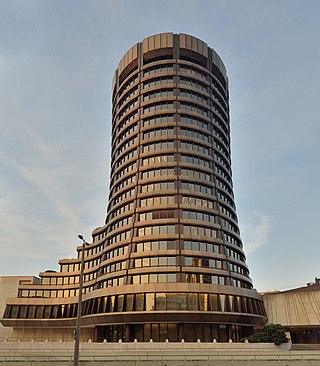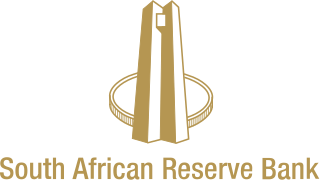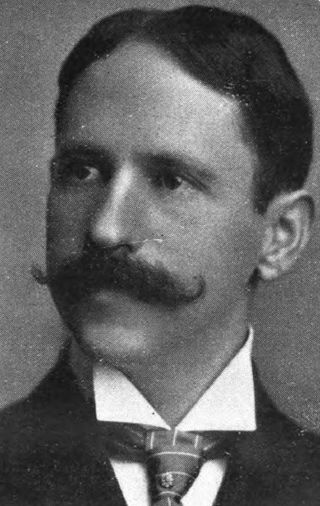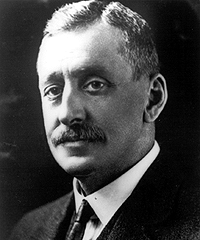Related Research Articles

The Bank for International Settlements (BIS) is an international financial institution which is owned by member central banks. Its primary goal is to foster international monetary and financial cooperation while serving as a bank for central banks. With its establishment in 1929, its initial purpose was to oversee the settlement of World War I war reparations.

Air Vice-Marshal Sir Philip Woolcott Game, was a Royal Air Force commander, who later served as Governor of New South Wales and Commissioner of Police of the Metropolis (London). Born in Surrey in 1876, Game was educated at Charterhouse School and entered the military at Royal Military Academy Woolwich, gaining his commission in 1895. Serving with the Royal Artillery, Game saw action in the Second Boer War and the First World War. After serving with distinction and bravery, Game transferred to the Royal Flying Corps in early 1916 serving as General Trenchard's chief staff officer. Finishing the War as an acting major-general, Game remained in the Royal Air Force after the close of hostilities. Notably he served as Air Officer Commanding RAF India and Air Member for Personnel. He retired from the military in 1929, having reached the rank of air vice-marshal.

Arthur Lawley, 6th Baron Wenlock, was a British colonial administrator who served variously as Administrator of Matabeleland, Governor of Western Australia, Lieutenant-Governor of the Transvaal, and Governor of Madras. The fourth and youngest son of the 2nd Baron Wenlock, he attended Eton College and Trinity College, Cambridge, before joining the military. Serving in the Mahdist War, he reached the rank of captain before resigning his commission to pursue other interests. Lawley was then private secretary to his uncle, the 1st Duke of Westminster, and subsequently to the 4th Earl Grey, who he followed to Rhodesia.

The South African Reserve Bank (SARB) is the central bank of South Africa. It was established in 1921 after Parliament passed an act, the "Currency and Bank Act of 10 August 1920", as a direct result of the abnormal monetary and financial conditions which World War I had brought. The SARB was only the fourth central bank established outside the United Kingdom and Europe, the others being the Federal Reserve, Bank of Japan and Bank of Java. The earliest suggestions for the establishment of the Central Bank in South Africa date back to 1879. A select committee, of ten members of Parliament, was established on 31 March 1920 to examine the benefits to the national interest of the establishing of the central bank.

Arthur Seligman was an American businessman and politician. He served in several offices in New Mexico, including mayor of Santa Fe and governor.

William Proctor Gould Harding was an American banker who served as the second chairman of the Federal Reserve from 1916 to 1922. Prior to his term as chairman, Harding served as one of the original members of the Federal Reserve Board, taking office in 1914. During his tenure as chairman, he concurrently served as the managing director of the War Finance Corporation from 1918 to 1919. Harding was responsible for a severe wave of inflation during the First World War. After leaving the Fed, Harding traveled to Cuba and advised the Cuban government on the reorganization of its financial and accounting system.
Gerard Rissik was the fourth Governor of the South African Reserve Bank. His term of office was from 1 July 1962 to 30 June 1967. He was succeeded by Dr. Theunis Willem de Jongh.

Major General James William Macarthur-Onslow, was a soldier, grazier and politician. The son of a prominent New South Wales family, he was commissioned in the New South Wales Mounted Rifles in 1892 and served in the Chitral Expedition, Second Boer War and the First World War. Afterwards, he served in the New South Wales Legislative Assembly and New South Wales Legislative Council.

Louis Thomas McFadden was a Republican member of the United States House of Representatives from Pennsylvania, serving from 1915 to 1935. A banker by trade, he was the chief sponsor of the 1927 McFadden Act, which rechartered the Federal Reserve System in perpetuity, liberalized branch banking for national banks and increased competition between member and non-member banks. He is known for his antisemitic conspiracy theories, which eventually saw him lose his seat in the House of Representatives.
Sir John Gordon Nairne, 1st Baronet was a director of the Bank of England and a BBC governor.
This article describes the history of New Zealand cricket from the 1918–19 season until 1945.
Clegg is a given name and an English surname. Notable people with the name include:

Captain Sir Bede Edmund Hugh Clifford was a British diplomat and colonial administrator, born in New Zealand, where his parents had moved in an unsuccessful attempt at sheep-farming.
Pearce William Edward "Pike" Curtin was an Australian public servant and economist who played a key role in the establishment of a banking system in Papua New Guinea. He was a talented sportsman in his youth, playing first-class cricket for Western Australia.

Eric Maxwell Robinson FRCVS was a South African veterinarian. He was born in Market Deeping, Lincolnshire, England and came to Knysna, South Africa in 1901 to join his parents. He was the son of John Andrew Robinson MRCVS.
William Haye Weekes was Dean of Bloemfontein in South Africa from 1922 to 1940.

Joseph B. "J. B." Grossman was an American businessman, politician, and philanthropist who served as a member of the Massachusetts House of Representatives and the Massachusetts Governor's Council and was treasurer of Grossman's, a building materials company. He was the first Jewish member of the Governor's Council.
William Clegg may refer to:
References
- 1 2 "South African Reserve Bank - Biographical Sketches of Directors: 1921 to 1993". Archived from the original on 30 March 2019. Retrieved 26 July 2011.
- 1 2 3 4 5 6 7 8 9 "Mr. W. H. Clegg". The Times (London). No. 50098. 22 March 1945.
- ↑ "Aberdeen Man's Distinction". The Evening Telegraph and Post (Dundee, Scotland). 30 March 1932.